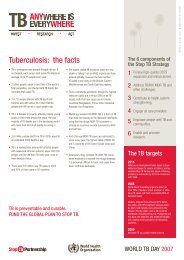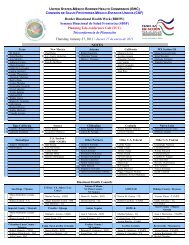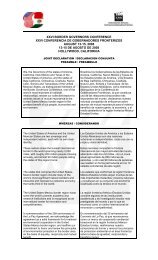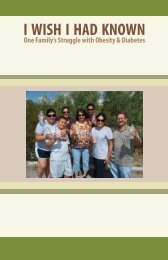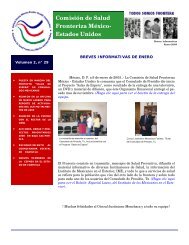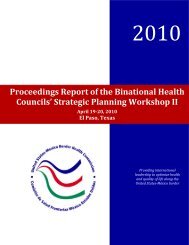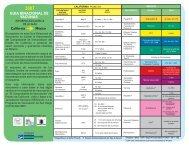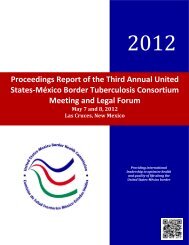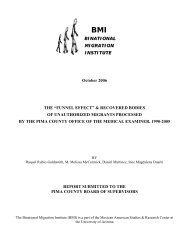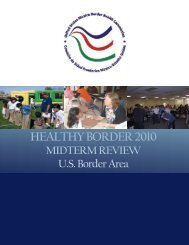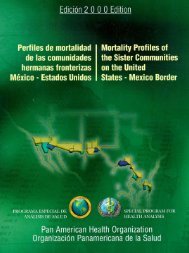National Healthcare Disparities Report - LDI Health Economist
National Healthcare Disparities Report - LDI Health Economist
National Healthcare Disparities Report - LDI Health Economist
Create successful ePaper yourself
Turn your PDF publications into a flip-book with our unique Google optimized e-Paper software.
Patient Centeredness<br />
n In 2008, overall, 6% of adult hospital patients reported poor communication with nurses during their<br />
hospital stay, and 5% reported poor communication with doctors (data not shown).<br />
n Compared with Whites, all minority groups were more likely to report poor communication with<br />
nurses (Figure 5.5). Blacks, American Indians and Alaska Natives, and patients of more than one<br />
race were more likely to report poor communication with doctors.<br />
n Also in 2008, Hispanics were less likely to report poor communication with nurses but not with<br />
doctors compared with non-Hispanic Whites (5% compared with 7% with nurses).<br />
n Patients with less than a high school education were more likely to report poor communication with<br />
both nurses and doctors compared with patients with any college education (7% compared with 5%<br />
with nurses, 6% compared with 5% with doctors, respectively).<br />
n Patients who speak Spanish at home were more likely to report poor communication with nurses<br />
compared with patients who speak English at home (7% and 5%, respectively), while patients who<br />
speak some other language at home were more likely to report poor communication with both nurses<br />
and doctors (7% for nurses and 6% for doctors).<br />
Also, in the NHQR:<br />
Chapter 5<br />
n Patients ages 45-64 were more likely to report poor communication with doctors compared with<br />
patients ages 18-44.<br />
n Patients age 65 and over were less likely to report poor communication with nurses compared with<br />
patients ages 18-44.<br />
Patient and Family Engagement: Enabling Effective Patient Navigation and Management<br />
of Care<br />
To effectively navigate the complicated health care system, health care providers need to give patients access<br />
to culturally and linguistically appropriate tools to support patient engagement. Culturally and linguistically<br />
appropriate services (CLAS) are important components of effective health care delivery. It is vital for<br />
providers to understand patients’ health care needs and for patients to understand providers’ diagnoses and<br />
treatment recommendations. Communication barriers can relate to language, culture, and health literacy. This<br />
year, we provide data on language diversity.<br />
For people with limited English proficiency, having language assistance is of particular importance, so they<br />
may choose a usual source of care in part based on language concordance. Not having a language-concordant<br />
provider may limit or discourage some patients from establishing a usual source of care.<br />
To fill the data gap that currently exists, we examined subnational data-gathering activities and identified the<br />
California <strong>Health</strong> Interview Survey (CHIS) as a unique source of this type of information. CHIS is<br />
conducted by the UCLA Center for <strong>Health</strong> Policy Research in collaboration with the California Department<br />
of Public <strong>Health</strong>, the Department of <strong>Health</strong> Care Services, and the Public <strong>Health</strong> Institute.<br />
Every 2 years, CHIS involves random-dial telephone interviews with up to 50,000 California households.<br />
The people included in CHIS are a statistically representative sample of the entire State’s diverse population.<br />
With each survey cycle, new households are selected to participate. Beginning in 2007, CHIS also includes a<br />
sample of cell-phone-only households, which are often younger and more mobile Californians frequently<br />
overlooked in land-line surveys.<br />
<strong>National</strong> <strong><strong>Health</strong>care</strong> Quality <strong>Report</strong>, 2011<br />
171



